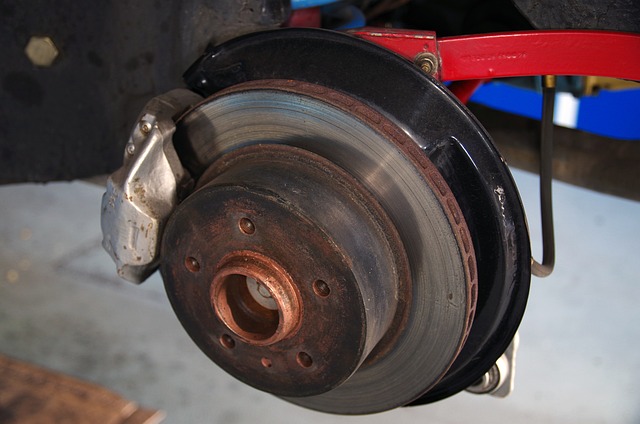Maintaining the electrical components of HVAC systems is essential for their efficient operation, safety, and longevity. Regular inspections and professional HVAC repair services are necessary to address issues like wire corrosion, open or short circuits, and incorrect wire sizes that can impair system performance and pose fire risks. Compliance with electrical safety standards is critical for preventing accidents and extending the life of the HVAC systems. Expert technicians skilled in electrical work are required to ensure these systems operate safely and efficiently, adhering to industry protocols and regulatory requirements. By engaging in routine maintenance and updates, homeowners and service providers can maintain optimal comfort levels while effectively managing energy usage and expenses. HVAC repair services that specialize in electrical issues are key to ensuring the safety and performance of your HVAC system.
HVAC systems are integral to maintaining comfortable indoor environments, but their efficiency can be significantly compromised by faulty wiring. This article delves into the critical aspects of HVAC wiring health, guiding homeowners and professionals through the essentials of identifying, repairing, and preventing wiring issues. From understanding safety standards to recognizing signs of wear, we explore the intricacies of HVAC repair within this context. Our comprehensive approach covers common problems, maintenance tips, cost considerations, and the importance of adhering to electrical safety standards. With a focus on ensuring code compliance and protecting your system from future complications, this article aims to enhance the longevity and performance of your HVAC system, ultimately contributing to improved indoor air quality and energy savings.
- Understanding the Importance of HVAC Wiring Health
- Identifying Signs of Faulty Wiring in Your HVAC System
- The Role of Electrical Safety Standards in HVAC Systems
- Common Wiring Issues in HVAC Systems and Their Solutions
Understanding the Importance of HVAC Wiring Health

Regular HVAC maintenance is paramount for ensuring efficient operation and long-term reliability, with a significant aspect being the upkeep of its electrical wiring. HVAC systems are complex, and their functionality hinges on a robust and well-maintained electrical system. Faulty wiring within these systems can lead to inefficient heating or cooling, increased energy consumption, and in extreme cases, fire hazards. A comprehensive understanding of the importance of maintaining the health of HVAC wiring is essential for homeowners and service professionals alike.
HVAC repair services often address issues related to electrical wiring, from simple wear and tear to more complex problems like corroded connections or outdated wiring that no longer meets current safety standards. Identifying these issues early through regular inspections can prevent minor malfunctions from escalating into major failures. It’s not just about fixing what’s broken; it’s about ensuring the integrity of the system to avoid potential disruptions and hazards. By employing qualified HVAC repair technicians who specialize in electrical systems, homeowners can ensure their systems operate safely and efficiently, thereby maintaining a comfortable living environment while optimizing energy usage and costs.
Identifying Signs of Faulty Wiring in Your HVAC System

The Role of Electrical Safety Standards in HVAC Systems

Ensuring the safety and efficiency of heating, ventilation, and air conditioning (HVAC) systems is paramount, given their critical role in maintaining indoor environmental quality. Electrical safety standards play a pivotal role in guiding HVAC repair practices. These standards are developed by industry experts and regulatory bodies to address the inherent risks associated with electrical components within HVAC systems. They provide clear protocols for technicians to follow during installation, maintenance, and repair, which is essential to prevent electrical hazards such as short circuits, overheating, and electric shocks. Adherence to these standards not only protects the users from potential harm but also extends the lifespan of HVAC equipment by preventing damage caused by faulty wiring or improper connections. Regular inspections and upgrades to meet electrical safety standards are integral to HVAC repair, ensuring that systems operate safely and efficiently. By prioritizing these standards, HVAC professionals can mitigate risks and enhance the overall performance of the systems they service.
Common Wiring Issues in HVAC Systems and Their Solutions

Common wiring issues within HVAC systems can significantly impact their efficiency and performance, necessitating prompt and accurate repair by a qualified professional. One prevalent problem is wire corrosion, often due to environmental factors or age-related deterioration. This can lead to intermittent power supply to the system, causing it to operate inconsistently or not at all. To address this, HVAC repair technicians conduct a thorough inspection of all electrical connections and wiring, cleaning corroded terminals and replacing damaged wires. Another frequent issue is the presence of open or short circuits, which can arise from physical damage to the wiring or improper installation practices. These can pose serious safety risks, including fire hazards, and must be identified and corrected with careful wire splicing, re-routing, or full wire replacements as needed. Additionally, incorrect wire sizes used during initial setup can lead to overheating and inefficient system operation. HVAC repair specialists will evaluate the entire electrical circuitry, ensuring that all wires are appropriately gauged for the system’s requirements and capable of handling the electrical load without causing harm to the unit or compromising its function. Regular maintenance and inspections by a professional can prevent many wiring issues from escalating, thereby extending the lifespan of the HVAC system and ensuring it operates at peak efficiency.
Effective HVAC system operation hinges on the integrity of its wiring. This article has demystified the importance of maintaining sound wiring health within these systems, offering clear guidance on detecting faulty connections and addressing common issues through professional HVAC repair services. By adhering to electrical safety standards, homeowners can ensure their systems function optimally and safely. Recognizing the signs of substandard wiring not only prolongs the lifespan of your HVAC unit but also aids in preventing potential hazards. In conclusion, regular inspections and prompt repairs are indispensable for the continued performance and safety of your HVAC system.
